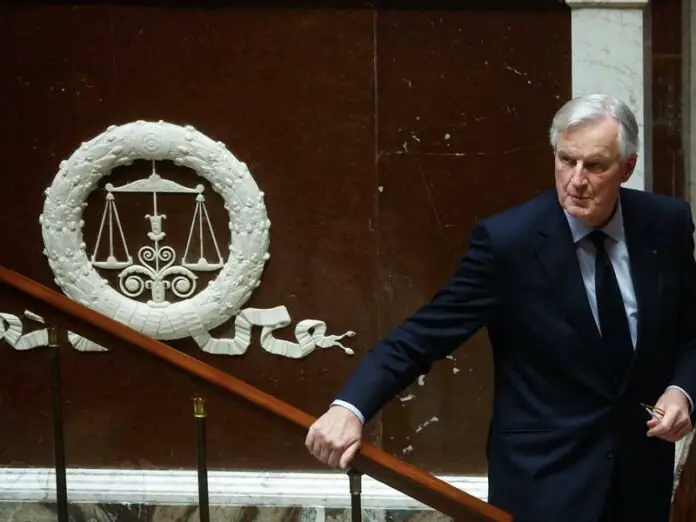Political Turmoil in France: The Threat to Prime Minister Michel Barnier
In a dramatic turn of events, France’s centre-right Prime Minister Michel Barnier finds himself on the brink of political upheaval. Just three months into his tenure, Barnier is facing a potential no-confidence vote in the National Assembly, spearheaded by populist factions from both the left and right. This brewing crisis not only threatens Barnier’s position but also raises significant concerns about the stability of the French government as it grapples with a fragmented parliamentary landscape.
The Rise of Populism in French Politics
The current political climate in France is marked by a surge in populism, which has gained traction across the political spectrum. On the left, parties such as La France Insoumise and the Socialist Party have rallied their bases, capitalizing on public discontent with the government’s policies. Meanwhile, on the right, the National Rally, led by Marine Le Pen, has also mobilized its supporters, eager to challenge the establishment. This dual threat from both sides of the political aisle has created a perfect storm for Barnier, who is now facing a united front against his leadership.
The Implications of a No-Confidence Vote
A no-confidence vote, if successful, would not only remove Barnier from office but could also plunge the French government into a state of paralysis. With no party holding a clear majority in the National Assembly, the political landscape is precarious. The absence of a dominant party means that any coalition formed to support a new prime minister would be inherently unstable, leading to potential deadlock on key legislative issues. Furthermore, parliamentary elections cannot be called until July next year, leaving the government without a clear path forward should Barnier be ousted.
Barnier’s Leadership and Challenges Ahead
Michel Barnier, a seasoned politician with a long history in French and European politics, was appointed by President Emmanuel Macron to bring stability and continuity to the government. However, his leadership has been met with skepticism from various factions within the National Assembly. Critics argue that Barnier has failed to address pressing issues such as rising living costs, unemployment, and social inequality. His government’s perceived inaction has fueled the narrative that he is out of touch with the needs of ordinary citizens, further emboldening opposition parties.
The Role of President Macron
President Emmanuel Macron’s influence looms large over this political crisis. As the architect of Barnier’s appointment, Macron now faces the challenge of either rallying support for his prime minister or preparing for the fallout of a potential ousting. Macron’s presidency has already been marked by significant challenges, including widespread protests and public dissatisfaction. The prospect of losing Barnier could further erode his authority and complicate his agenda, which includes ambitious reforms aimed at revitalizing the French economy.
Public Sentiment and the Future of Governance
Public sentiment plays a crucial role in the unfolding drama. Many citizens are disillusioned with the political establishment, feeling that their voices are not being heard. This discontent has fueled the rise of populist movements, which promise to challenge the status quo. As the no-confidence vote looms, public opinion will likely influence the decisions of lawmakers, with many politicians wary of alienating their constituents. The outcome of this political crisis could reshape the landscape of French governance, leading to a reevaluation of party alliances and strategies.
The Road Ahead: Uncertainty and Potential Outcomes
As the situation develops, the uncertainty surrounding Barnier’s future remains palpable. Should the no-confidence vote proceed, it will set off a chain reaction that could redefine the dynamics of French politics. The potential for political gridlock raises questions about the government’s ability to address pressing issues and implement necessary reforms. In this climate of uncertainty, all eyes will be on the National Assembly as lawmakers prepare to cast their votes, with the fate of Barnier—and the future of France—hanging in the balance.

